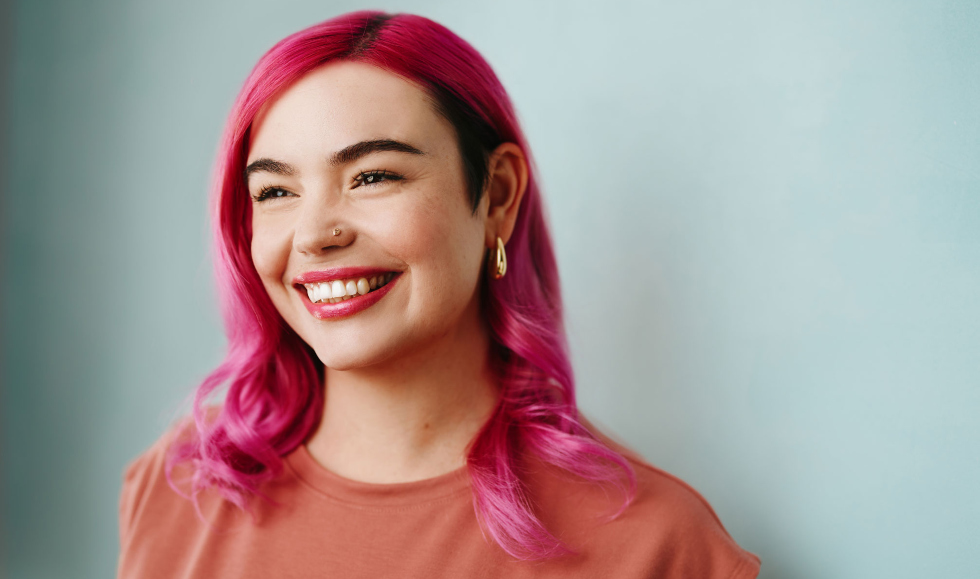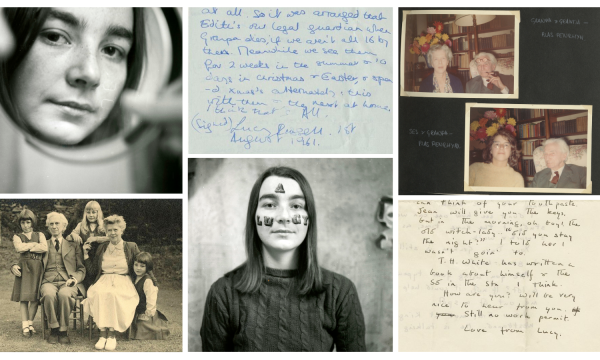
Jaclyn Desforges, an award-winning Hamilton writer and the 2023-2024 Mabel Pugh Taylor Writer in Residence, will be wrapping up her residency at the end of April.
The Mabel Pugh Taylor Writer in Residence program is an annual partnership between the Faculty of Humanities’ Department of English and Cultural Studies, the McMaster University Library and the Hamilton Public Library. Each year, a Canadian author is invited to work with creative writers both from McMaster and within the Hamilton community.
Desforges is the author of Danger Flower, a collection of poetry, Why Are You So Quiet? a children’s book, and Hello, Nice Man, a chapbook.
In this Q&A, she reflects on the work she’s done over the past eight months, the different things that writing can mean and the different ways to develop a rewarding writing life.
What sorts of things have people been working on?
The people I work with tend to fall into a couple of different camps. There are people who have been writing for a long time, but who may feel a little bit nervous about the publication process—their stuff is really polished, and what they need most is a pep talk and some information on how the publishing process works.
This is often along the lines of answering questions like: how do you develop a publication strategy? How do you know which journals to send your work to, and what’s the larger purpose behind doing that? I also worked with a number of people who hadn’t started creative writing yet, or were doing a different kind of writing, like technical writing or journalism, and wanted to know how to make the transition into creative writing.
In this field, there are often people who loved to write a long time ago, and then dropped it when they encountered all the challenges of being in the world—important things like paying bills and taking care of children—or they were hurt in some way, at some point—sometimes by a teacher with a red pen, or by unsupportive friends or family members—which caused them to put writing aside.
It’s really satisfying to be able to help reconnect people with that creative part of themselves.
You describe yourself as a queer and neurodivergent author. Can you talk a little about working with other neurodivergent writers during your residency?
One thing that was amazing during this residency was how many neurodivergent people, especially neurodivergent women, came to talk to me. It was always so much fun to chat with other people with autism or ADHD, and talk about strategies for building their writing practices.
Like what?
I think the problem with conventional writing advice is that it’s usually designed by neurotypical people for neurotypical people, and it often involves focusing for a long period of time. I mean, my brain doesn’t just deliver me nice linear words in a row—it tends to be running all over the place. I really had to build up to that level of attention and focus, and to deal with the emotions surrounding that.
If you sit down at the page and you immediately feel anxious, uncomfortable or stressed, your brain is going to find other things for you to do instead. You’re going to go wash dishes or do literally anything else that doesn’t feel so uncomfortable.
One of the things that I really recommend for neurodivergent people, specifically for people with ADHD or autistic people, because that’s my experience, is to create “time containers” for writing—which means you get a checkmark not based on the quality of your words, or the number of them, but on the time you’ve spent in your writing container.
And spending that time doesn’t have to mean writing. If you set your timer for 10 minutes and you’re actively looking over your manuscript, or you’re engaging with the pages in front of you by reading, making notes, or writing, then you’ve spent time in the world of your writing for 10 minutes, and you get a check mark.
You can build that over time, but I think even those small wins can be really helpful.
Can you talk a little bit about the idea that anyone can write?
I think a lot of people have an idea in their heads about what a writer is, and your work seems to focus on breaking that down.
Writing belongs to everybody. Writing is just the transmutation of consciousness into language—so your writing is essentially communicating that you’re a being on this planet, and this is what it feels like for you to be human.
At the same time, the publishing systems in the world, generally speaking, are not designed to facilitate the transmutation of consciousness into language—they’re designed to make money. Big publishers want certain types of books, and they’re businesses. They want to publish books that make money.
This is good and fine, but I think it’s important that we separate the two. You can have a vibrant writing life within the traditional publication system, but you can also have a vibrant writing life outside of it.
It’s important to break down what you actually want to get out of writing, and what writing can bring you. You can lead an absolutely wonderful writing life that includes connection with community and publish in any number of ways: self-publishing, working with a small press, publishing a zine, or going to an open mic night.
What does writing mean to you?
For me, publishing is a really important part of my writing life. I have fun playing this game human beings have created — I like writing and sending out my stuff and updating my submissions spreadsheet. For the most part, I enjoy the emotional roller coaster of acceptance and rejection. I have fun with my career. But the ultimate reason why I write is that it helps me be part of the world.
I don’t write for myself—why would I? I already know what’s going on in my head. I write as a method of communication.
Maybe that comes from my experience as an autistic person—communicating verbally hasn’t always come naturally to me, and it can be easier to connect with people through language in this way.
As a writer, the more myself I am, the stronger my work is. My advice for everyone who comes to see me is to be themselves. The fact that I can be myself in this field and receive not only acceptance but celebration of what makes me unique is pretty amazing.
Any standout moments from the residency?
I did an online workshop called “How to Write a Poem that Makes People Feel Things,” in which I taught a writing method I developed called intuitive poemmaking. Basically, it’s a process that helps people connect with their subconscious minds and the images, metaphors and symbols that live there.
When I invited people to share what they’d written, they started reading the most stunning poetry.
These were people who didn’t necessarily identify as poets, and in some cases, they hadn’t written much poetry before at all—and it felt really special to me to be a part of that, and to help them connect with those poetic aspects of themselves.
You’ve worked with writers for a long time. How has this experience been different from what you’ve done in the past?
It’s exactly what I’ve been doing up until now, only bigger!
The ability to be accessible to anyone who wanted to make an appointment with me was wonderful—I didn’t have to worry about the business or administrative details, I could just be available.
Getting feedback from people who said I made a difference in their writing, or helped them develop the confidence to be able to send out their work, or get a poem published—there’s nothing better than that.
When I get to the end of my term on April 30, it’s going to be sad, but I’m really proud of what I’ve accomplished. I came into it with a plan, and I did the plan, and I couldn’t have asked for better support, trust and flexibility from the library and from Mac.
What’s next for you?
I’m working on my first novel now, so I’m going to keep writing that, but I’m also going to keep doing workshops and coaching writers.
A lot of people in the writing mentorship world tend to fall into the camp of either being a manuscript person—wanting to focus on reading manuscripts and making them better—or being a coach for people to help with mindset and those kinds of things.
I’ve found I belong right in the middle. I’m very big on craft and commas, and I love looking at people’s work and being able to instantly identify strengths and solutions.
But I also really love talking with people about their lives and what they need in order to move forward and do this work, because it’s never just about the writing. It’s about everything else. It’s an emotional thing, because when you write something down, you’re literally saying that your words matter.
There’s nothing more satisfying than seeing someone start to feel like they matter.
Learn more
Find out more about Jaclyn and her work at her website.

